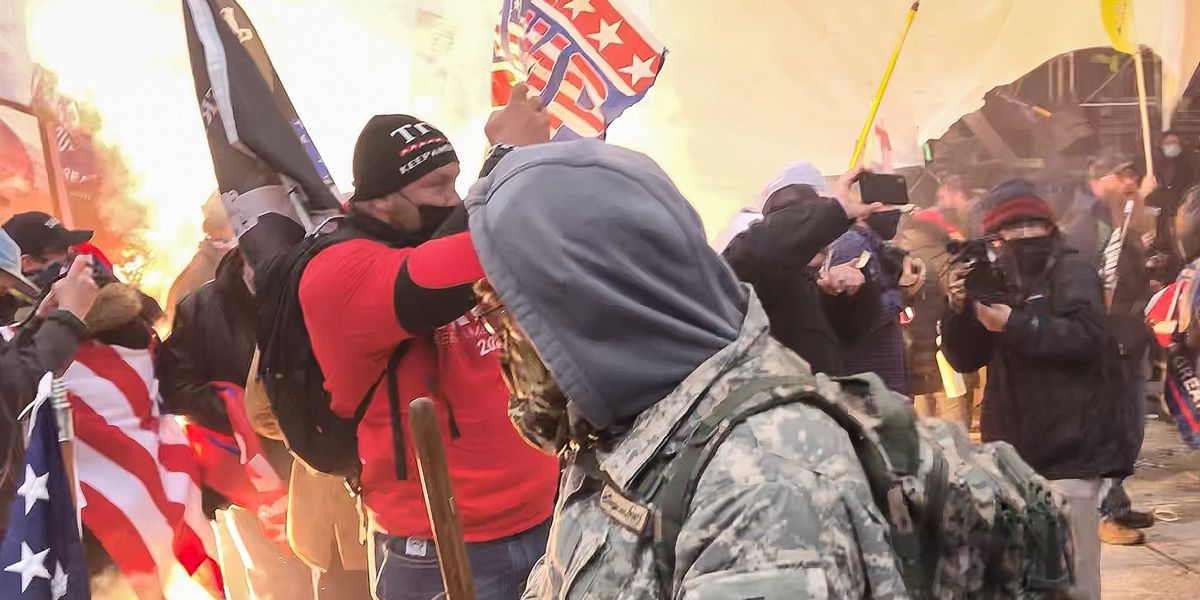

That rumble, thud, and explosion heard in the wee hours of Nov. 6 was the sound of the largest investigation in FBI history crashing into the dustbin of history.
When Decision Desk projected that the commonwealth of Pennsylvania gave Donald J. Trump the 270 Electoral College votes he needed for victory, the Jan. 6 ship of state fell to earth like the Luftschiff Zeppelin Hindenburg in Lakehurst, New Jersey, on May 6, 1937.
Boom.
Perhaps at no time in the modern era has a presidential vote been watched so keenly as January 6ers watched the evening of Nov. 5. Their cries of redemption broke the early-morning calm on Nov. 6 across all 50 states.
The January 6 machine is dead. Long live the January 6 machine.
From the dingy cells of the District of Columbia jail, the unwavering tones of the national anthem rang out more assuredly than on hundreds of other nights over the past nearly four years.
Oh say, does that star-spangled banner yet wave o'er the land of the free and the home of the brave?Somewhere out in the ether, the echoes of President Gerald R. Ford hung in the air:
My fellow Americans, our long national nightmare is over. Our Constitution works; our great Republic is a government of laws and not of men. Here the people rule. But there is a higher Power, by whatever name we honor Him, who ordains not only righteousness but love, not only justice but mercy.As the electoral map began to take shape the evening of Nov. 5, the accused and long aggrieved of Jan. 6 felt a growing sense of hope — something they never received from two years of GOP control in the U.S. House of Representatives.
That hope was brought home by the maligned, impeached, attacked, mocked, and despised man whom the American left shot in the ear because they simply could not beat him with ideas — or honest ballots.
Deux ex machina, thy name is Trump.
 Capitol Police take down a Jan. 6 protester on the West Plaza at the U.S. Capitol on Jan. 6, 2021.Photo by ROBERTO SCHMIDT/AFP via Getty Images
Capitol Police take down a Jan. 6 protester on the West Plaza at the U.S. Capitol on Jan. 6, 2021.Photo by ROBERTO SCHMIDT/AFP via Getty Images
How bitter the sight must have been for the D.C. elites and oligarch class to behold: the despised orange man at the dais declaring Nov. 5 as “the day Americans regained control of their country.”
Donald J. Trump’s seemingly impossible ascent from the ashes of Jan. 6 will loom over American history in a way no other event or political movement ever has.
The January 6 machine is dead. Long live the January 6 machine.
While the FBI and the inaptly named U.S. Department of Justice might continue pushing the creaking wheels of “shock and awe” to ensnare a few dozen more January 6ers, the tires will be flat soon enough.
In a way, Trump owed this victory to his followers and supporters who were ground up in the shredder of selective prosecution for protesting election fraud — and getting caught up in rioting that was meant to mortally wound the career of the 45th president of the United States.
January 6 still cries out for investigation and action on a range of issues — an effort that should begin even before Joseph Robinette Biden Jr. and Kamala Devi Harris depart the White House on Jan. 20, 2025.
Pardon me, Mr. President
Many if not most of those whose lives were ruined by Jan. 6 have hoped a Trump victory would bring pardons or commutations to put an end to the political warfare waged from the left on Middle America.
Trump has frequently talked about issuing pardons for Jan. 6 defendants, but the devil in that project will be in the details. A blanket pardon or pardons restricted to nonviolent cases? What would accomplish justice and begin healing? Some of those discussions have already taken place.
A real January 6 investigation
The work product of the so-called Jan. 6 investigations has been heavy on narrative and light on truth. Congress should not shirk or duck this important duty. The full weight of Congress, amply funded, is needed to cut through the propaganda and unearth the truth. The Department of Defense played a bigger role than has been disclosed publicly. Investigators need to document which troops were at the Capitol that day and what their mission was.
How much did the myriad Jan. 6 investigations and 1,500-plus prosecutions cost the American taxpayer?
Should the Justice Department be downsized? Should investigators instead look at the roles played by Attorney General Merrick Garland, Deputy Attorney General Lisa Monaco, and other Justice Department brass in designing and arming the Jan. 6 prosecution machine?
Fedsurrection, fedsurrection
There is too much smoke surrounding this issue for there not to be fire. What was the federal law enforcement presence at the Capitol on Jan. 6, and what did agents and informants do? Was there incitement or entrapment? And if there were large numbers of feds present, why did they not help quell the rioting that broke out?
Reforms need to be examined to correct how confidential human sources are used and managed in FBI investigations. A pattern suggesting routine entrapment demands some kind of check on the power of the informant.
New criminal probes
Special prosecutors should be employed or grand juries impaneled to investigate the killing of Ashli Babbitt and the senseless, horrific beating and death of Rosanne Boyland. The D.C. bubble has hidden many facts and ignored many others that contributed to these two Jan. 6 tragedies.
 Rosanne M. Boyland is wheeled to a rescue squad from the Crypt level of the U.S. Capitol about 5:30 p.m. on Jan. 6, 2021. Many questions remain about Boyland’s death.Photo by ANDREW CABALLERO-REYNOLDS/AFP via Getty Images
Rosanne M. Boyland is wheeled to a rescue squad from the Crypt level of the U.S. Capitol about 5:30 p.m. on Jan. 6, 2021. Many questions remain about Boyland’s death.Photo by ANDREW CABALLERO-REYNOLDS/AFP via Getty Images
Torture behind bars
Congress failed to investigate and expose the banana republic torture and abuse visited upon many dozens of men and women in D.C. pretrial detention and at Bureau of Prisons facilities. These victims’ stories should be documented and shown to the American people in televised prime-time hearings.
Capitol Police transparency
Congress needs to rein in the U.S. Capitol Police, making the department more directly accountable to the American people. The agency does not believe its records should be available to the public. The Capitol Police often ignore or deny requests from media. Judicial Watch Inc. has engaged in years of litigation to obtain records.
Congress should closely examine the Capitol Police Jan. 6 timeline and what took place since that day. How many officers faced retaliation for reporting issues and problems to the USCP inspector general? Was there a shadow administration undercutting former Police Chief Steven A. Sund in the weeks leading to Jan. 6?
During the brief tenure of acting Chief Yogananda Pittman, officers were forced to sign nondisclosure agreements after Jan. 6. Some were unjustly forced out. Pittman was given a sweetheart retirement deal after she took a new job at the University of California-Berkeley.
Federal criminal code
Congress should examine how the federal criminal code was used and weaponized to take down Jan. 6 defendants. From the dubious “obstruction of Congress” felony to the minefield that is the Federal Sentencing Guidelines, Congress should consider adjustments that make it harder to persecute instead of prosecute.
Rage-mob damage
How did the mere allegation or even a hint of an allegation create conditions that destroyed families without any due process? Why was Air Force veteran Babbitt denied military honors by the Pentagon when she was not accused, much less convicted, of Jan. 6 criminal violations? Why were other veterans denied disability or other benefit payments based on charges alone? Why did couples lose their mortgage loans because one was charged with a Jan. 6 offense?
FBI procedures and power
Aside from thinning the herd of G-men at J. Edgar Hoover’s stomping grounds, the bureau might benefit from a serious review of proper and improper use of tactical power to apprehend nonviolent misdemeanor defendants. Congress or a Jan. 6 task force should examine what some defense attorneys argue is an unconstitutional projection of FBI power via SWAT raids that might usurp the sovereignty of the states.
 Former President Donald Trump walks out to speak at a campaign rally held at J.S. Dorton Arena in Raleigh, North Carolina, on Monday, Nov. 4, 2024.Photo by Jabin Botsford/The Washington Post via Getty Images
Former President Donald Trump walks out to speak at a campaign rally held at J.S. Dorton Arena in Raleigh, North Carolina, on Monday, Nov. 4, 2024.Photo by Jabin Botsford/The Washington Post via Getty Images
The Brady Bunch
In hundreds of Jan. 6 criminal cases, exculpatory evidence was withheld from defendants, numerous defense attorneys have asserted. In some other cases, federal judges looked the other way while defense attorneys held up long lists of evidence they were denied. The House Committee on the Judiciary might consider a review of this topic to see why the strictures of the Supreme Court case Brady v. Maryland did not prevent abuses.
A judicial review
Not a single Jan. 6 defendant was granted a change of venue, despite ample evidence that the District of Columbia voting pool is nearly 95% Democrat and deeply biased against those who were at the Capitol on Jan. 6. No Jan. 6 defendant was found not guilty by a D.C. jury.
Did District judges properly administer the law? Should defendants accused in D.C. have the option to be tried by a jury of their peers in their home federal court districts?
A study could be made of the deep judicial bias that poisoned many Jan. 6 cases, such as judges who found it impossible to check their tongues or even be mindful that their public statements could taint the jury pool.
While some social media influencers might call for retribution under the new Trump administration, it's more likely that January 6ers are simply looking for something to which they are already entitled: justice.
Like Blaze News? Bypass the censors, sign up for our newsletters, and get stories like this direct to your inbox. Sign up here!
.png)
 5 days ago
17
5 days ago
17
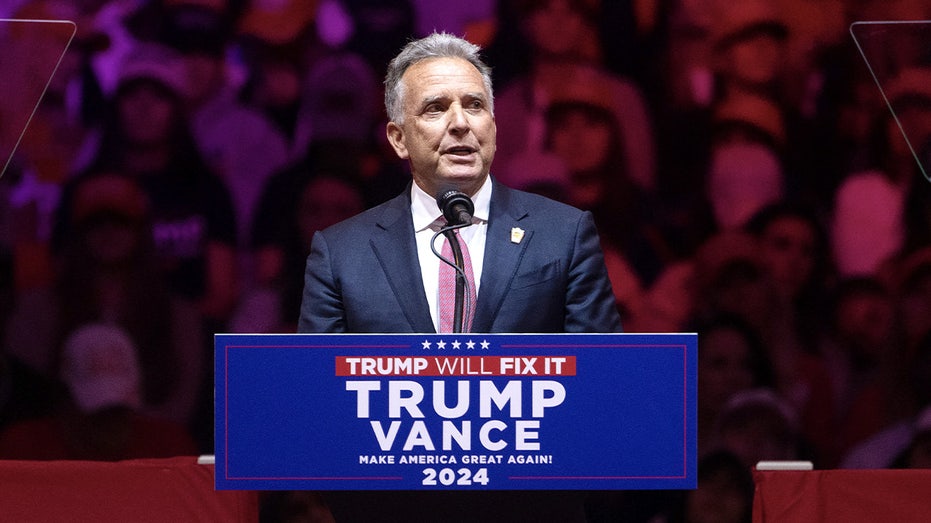

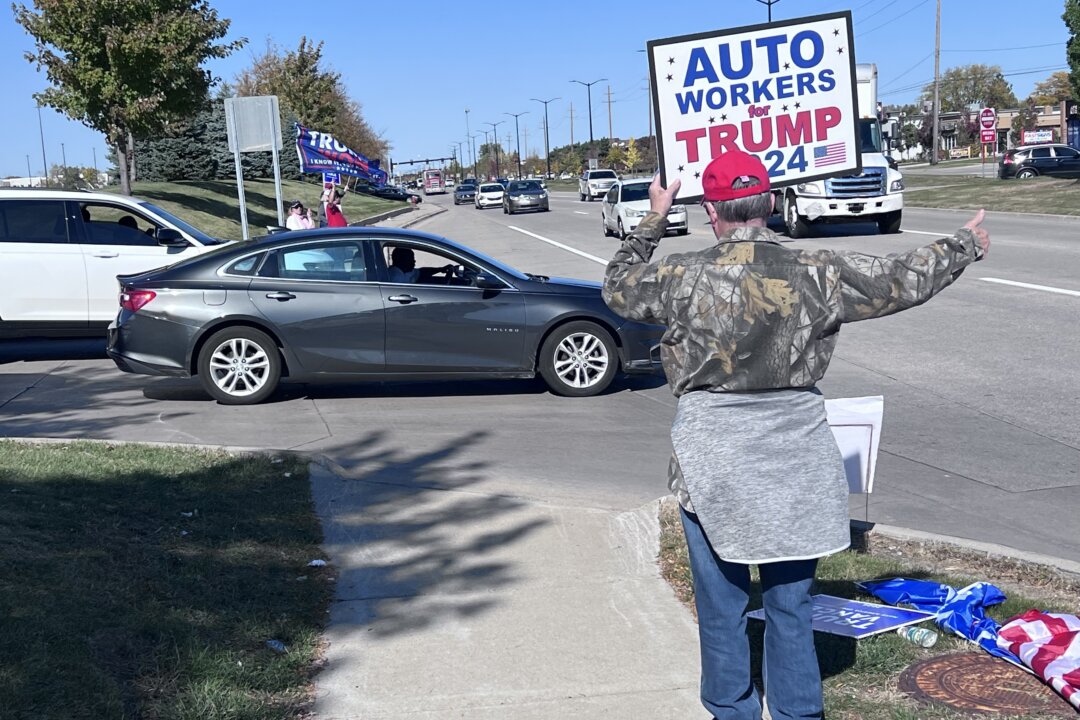

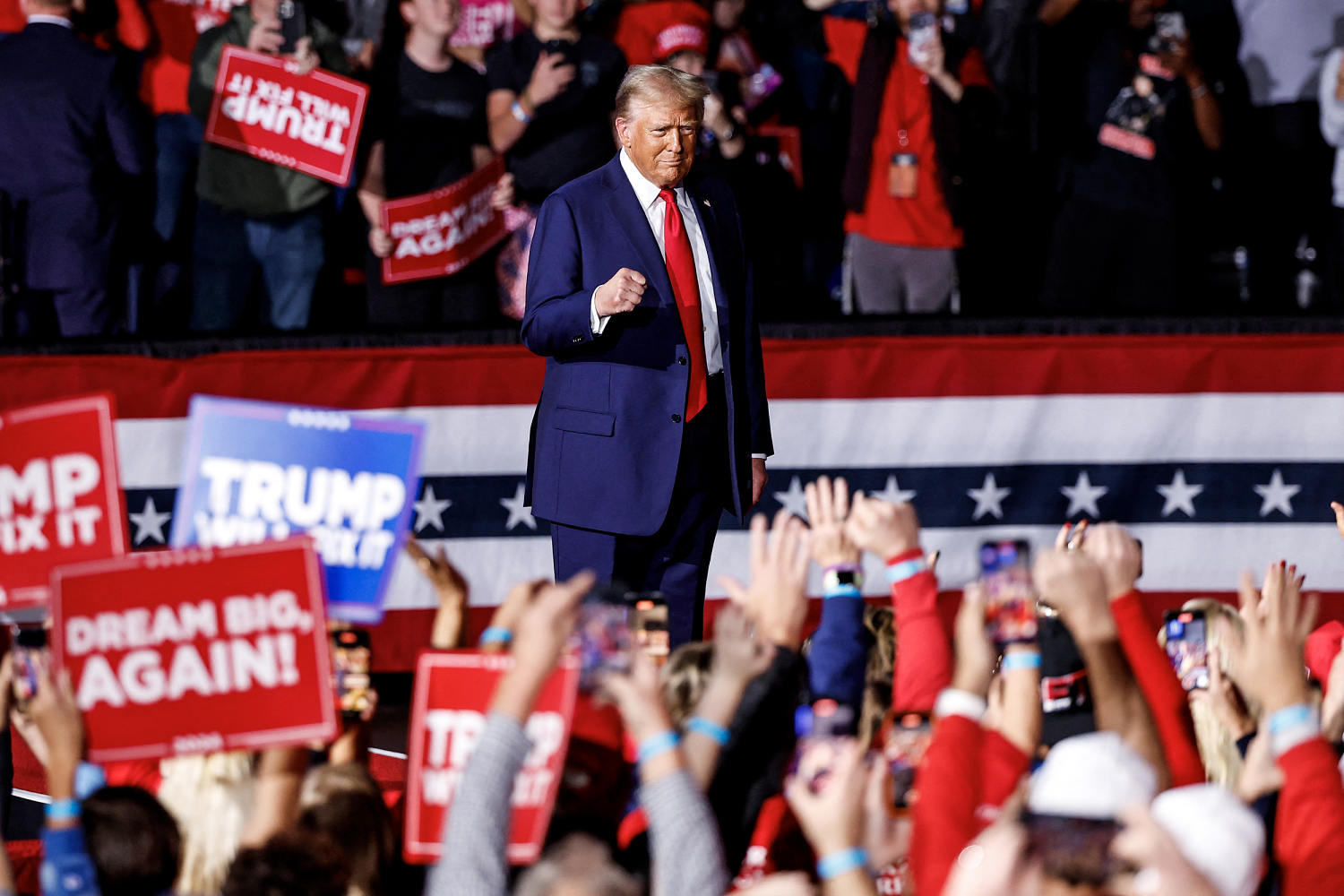



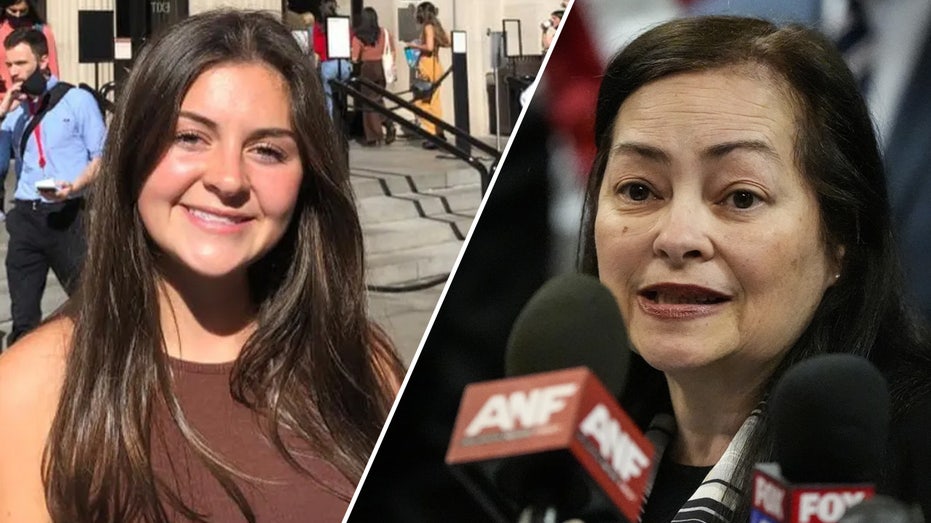

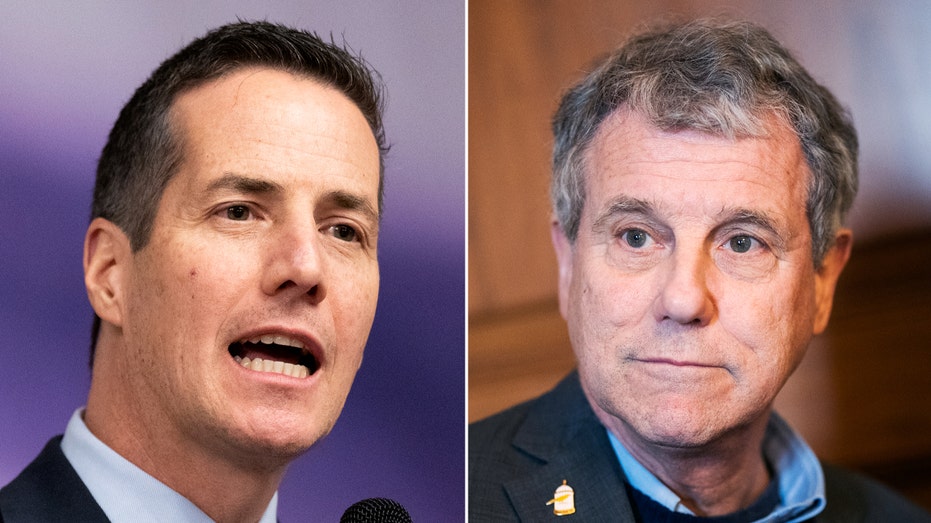


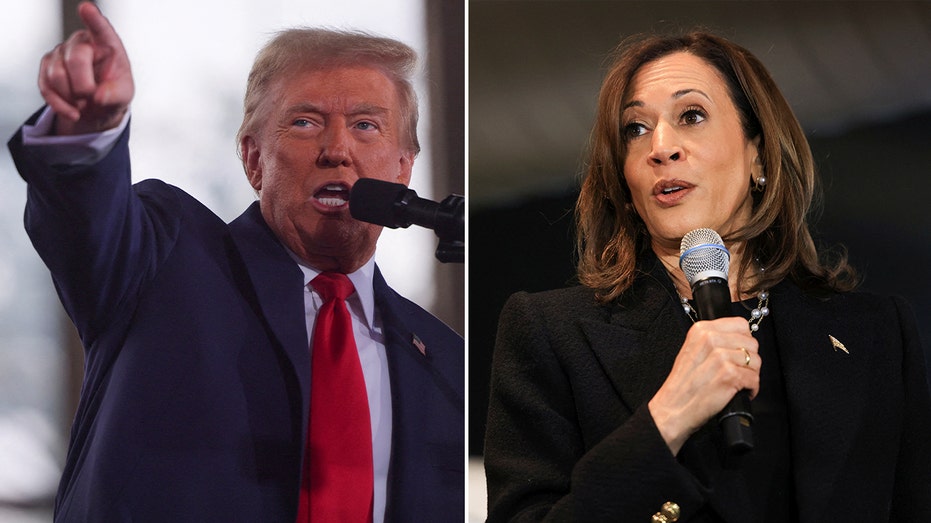

 English (US)
English (US)